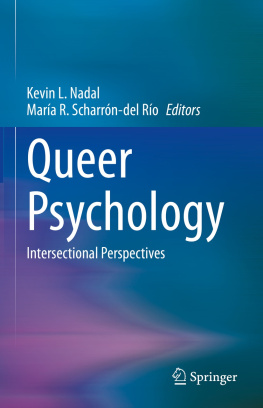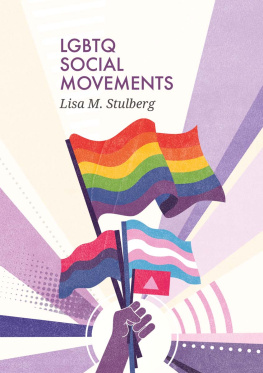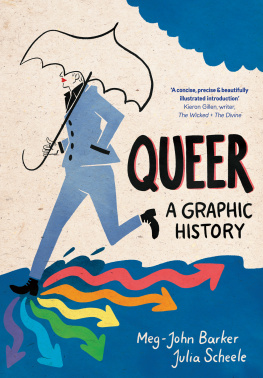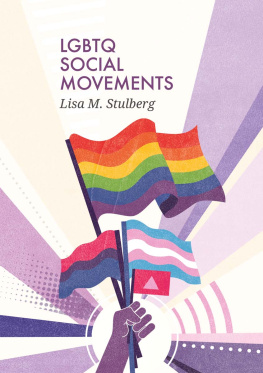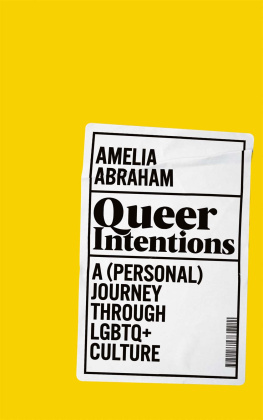Queer Progress
Queer Progress is a book that will work as a crucial political intervention in the present and have lasting value as a vital piece of community history.
Steven Maynard, Department of History, Queen's University
More than a mere memoir, this work offers an insightful critique of how radical politics can be displaced. This book is essential reading not simply for lesbians and gays who wish to know their histories in Canada. It is mandatory reading for those who seek to learn from activist histories in order to conceive and implement strategies to create a better world.
Viviane Namaste, Professor, Simone de Beauvoir Institute, Concordia University
An important, timely, and highly readable book, Queer Progress is a thoughtful and passionate memoir by one of Canada's leading LBGTQ and AIDS activists. Importantly, it foregrounds gender, class, and race conflicts and highlights the links between Canadian and international sexual politics. Tim McCaskell has given not only Canadians but the international LGBTQ movement an excellent, fair-minded account of the surprising way in which the efforts of a small band of radicals unwittingly laid the foundations for Pride commercialism and the search for same-sex marriage and respectability.
Mariana Valverde, Centre of Criminology and Socio-legal Studies, University of Toronto
Queer Progress is a refreshingly complex, nuanced, and grounded charting of queerness that coincides and collides with activist-academic histories of LGBTQ activism in Canada over the past four decades. The books rich vignettes, meditations, and stories meaningfully probe the horizons of queer liberalism, revealing and questioning the shifting relationship of queerness to the political. It is an invaluable contribution and challenge to the project of queer social justice, pushing its readers to consider the traction and intractability of queer praxis, especially in this deeply pervasive neoliberal moment.
Amar Wahab, Professor of Gender, Sexuality and Women's Studies, York University
Queer Progress is a major contribution to queer mens history focusing on Toronto from the 1970s to the present. Melding autobiography and historical documentation with analysis, this is a must-read for those interested in queer struggles, sexual liberation, and social justice.
Gary Kinsman, activist, author of The Regulation of Desire, co-author of The Canadian War on Queers
I couldnt put Queer Progress down once I started. Tim McCaskells first-hand account of Torontos major sexuality rights debates and battles is riveting. Moving between the small details of particular events and his broad, convincing analysis of neoliberalism, McCaskells frank style and wry wit produce a text that is in parts gut-wrenching (the devastation of the AIDS crisis) and charming (his own sexual adventures). Queer Progress is necessary reading, especially for folks like me and younger, who arrived late in this story so far: we have, finally, an explanation of how and why things are in the present, and clues about what may lie ahead.
Andil Gosine, Associate Professor of Sociology, York University
A Canadian political masterpiece. To feel the front line drama that gave birth to and built the Canadian LGBTQ movement, you need to read this insightful book.
Olivia Chow, Distinguished Visiting Professor, Ryerson University, Former MP
In his book Queer Progress, Tim McCaskell charts the accomplishments, possibilities, and distortions of the rather queer progress of LGBT politics in Canada over the past forty years. The book combines personal narrative, grounded in decades of activism, with a lively interpretation of contemporary debates about homonationalism, neoliberalism, and social difference. The result is a thoughtful, engaging, and must-read book for anyone interested in the history of Canadian LGBT politics.
Eric Mykhalovskiy, Professor of Sociology, York University
Acknowledgements
There is an extensive group of people without whose assistance this book would have been impossible. First I would like to thank Alan Miller at the Canadian Lesbian and Gay Archives, who facilitated my access to the collection, an indispensable resource for this work. Don McLeods annotated chronologies clarified the sequence of an often confusing jumble of events. Then there were those who generously agreed to interviews or answered questions lost to the documentary record: Jim Bartley, Andrew Brett, Naomi Brooks, Hilary Cook, Graham Crawford, Debbie Douglas, Jari Dvorak, Maureen Fitzgerald, David Foreman, Bob Gallagher, Susan Gapka, Amy Gottlieb, John Greyson, Jonathan Hadad, Brent Hawkes, Helen Kennedy, Stephen Kerr, Walter Klinger, Akim Ad Larcher, Paul MacPhee, Courtnay McFarlane, Frank McGee, Carl Miller, Jim Monk, Brian Mossop, Ken Popert, Kyle Rae, David Rayside, Mark Smith, Douglas Stewart, Shawn Syms, Mariana Valverde, Rinaldo Walcott, Tom Warner, Lorna Weir, and Art Zoccole.
Others read all or part of various versions of the manuscript and offered comments, corrections, and suggestions: Glen Brown, Ed Jackson, Richard Fung, Gerald Hannon, Jearld Moldenhauer, Gary Kinsman, Natalie Kouri-Towe, Eric Mykhalovskiy, Viviane Namaste, and Gillian Rogerson. David Seitz inspired the title.
Still others assisted me with aspects of the research: Mary Louise Adams, Joan Anderson, Debbie Brock, Patrick Case, Vijaya Chikermane, Elle Flanders, Avvy Go, Prabha Khosla, Alan Li, Gail Posen, Peter Yu, and Peter Zorzi. Tilman Lewis provided meticulous editorial support. Thanks, too, to the team at Between the Lines, who helped see this rambling project through to a finished book.
Introduction
How did we get here from there?
O nce again, the Israel lobby was attempting to prevent Queers Against Israeli Apartheid from marching in Torontos Pride parade. The summer of 2012 was the fourth installment of what seemed to be an annual crisis. QuAIA fought and won on the terrain of freedom of expression. But the process revealed something queer going on.
In the early days of gay liberation, political speech was tolerated, no matter how outrageous. It was always sex that got us into trouble, both doing it and talking about it. But in 2012, we were told that Pride was about celebrating sex in all of its outrageous manifestations. It was political speech that was unacceptable.
That is when I was moved to start working on this book.
My involvement with the politics around QuAIA introduced me to the debates about homonationalism, a concept coined by Jasbir Puar in her book Terrorist Assemblages. As a social movement, gay rights had been successful beyond its early strategists wildest dreams. From a reviled, quasi-criminal class, we were now included in the constellation of minorities valued by Canadian multiculturalism. Our sexual orientation was no longer a barrier to full legal citizenship. We were recognized in a developing international human rights architecture.
But this progress had been rather queer. We had come a long way but hadnt exactly ended up where we expected. First, such progress hadnt affected all of us in the same way. Some parts of our community were just as disenfranchised as ever, while others had become identified with the status quo. As we moved from the peripheries to the mainstream, there was a remarkable transformation in dominant LGBT politics, from one aimed at social transformation to one that celebrated social inclusion. Torontos Pride parade now featured many of our traditional antagonists: the Conservative party, churches, some of the biggest corporations and banks, the police, and the military.



